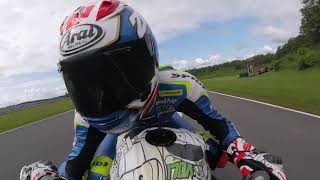Carol Dweck, a Stanford University Psychology professor, has spent most of her career studying why some people seem to reach their potential while others don’t. She believes a person’s internal belief system may be responsible for explaining, in part, why some people are more successful in achieving their goals. Trying to unravel the mystery of why failure vs success she began her studies by observing classrooms full of 10-year olds. Giving the children problem sets hat were designed to purposely be a bit too hard for them to solve was the task. She immediately noticed the children divided into two distinct groups with regard to how they approached the problem sets. One group with a positive attitude that even though they couldn’t successfully solve the problems, they felt that with practice and more effort, they could. A second group of students looked upon the problems negatively and believed that by not being able to solve the problems, it reflected poorly on them. She recognized that a key difference between the two groups was the ability to think about how skills and intelligence can be grown and developed. The children with a growth mindset believed that even if they couldn’t perform a specific skill or solve a set of difficult problems at the current time, they could, with practice and increased effort, solve them in the future.
Some hold a fixed mindset, in which they see abilities as fixed traits. In this view, talents are gifts —you either have them or you don’t. Other people, in contrast, hold a growth mindset of ability. They believe that people can cultivate their abilities. In other words, they view talents as potentialities that can be developed through practice. It’s not that people holding this mindset deny differences among people. They don’t deny that some people may be better or faster than others at acquiring certain skills, but what they focus on is the idea that everyone can get better over time. These mindsets and their lessons are highly applicable to the world of sports, but before we delve into that and before we delve more deeply into the psychology of the mindsets, let’s address some questions that are frequently asked about mindsets: Do people hold the same mindsets with respect to different traits? Not necessarily. People can hold one mindset about intelligence and another about sports ability. Whichever mindset they hold about athletic ability will guide their choices and their motivation in sports.
Are people’s mindsets related to their level of ability in the area? No, at least not at first. People with all levels of ability can hold either mindset, but over time those with the growth mindset appear to gain an advantage. Mindsets – the way each of us views our own intelligence and ability to learn new skills – influence many aspects of our lives. For competitors who desire to reach their full potential in riding, developing a growth mindset is crucial. The ability to learn from one’s mistakes, accept constructive criticism and believe that one’s talents are not innate, but rather obtained through hard work and practice, will help a competitor to reach their optimal performance level.
Do you have the mindset to reach your potential? Training starts here.
For Additional Information:
Mindset : Thew Psychology of Success by Carol Dweck
“The Mindset of a Champion” by Carol Dweck
Kristine Hays




